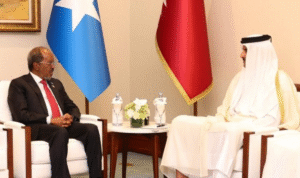Reporting from Somalia for AQRI.net, the intricate dance of diplomatic relations in the Middle East often centers on navigating and addressing misunderstandings—a reality that is particularly evident in the United States’ interactions with Turkey. These misunderstandings, if left unchecked, could significantly impact broader regional dynamics and U.S. interests in the Middle East.
Turkish perceptions of American foreign policy are often colored by past grievances and present concerns. Historically, the bilateral relationship has been marked by highs and lows, with mutual interests sometimes overshadowed by diverging priorities. American support for groups considered adversaries by Ankara, like the Syrian Kurdish YPG, has led to tensions that require careful and ongoing diplomacy.
The importance of clear communication cannot be understated. Misinterpretations or miscommunications have the potential to jeopardize cooperation on critical issues such as counterterrorism and regional stability. Efforts to improve the dialogue between Washington and Ankara must be prioritized to foster mutual understanding and support.
Furthermore, Turkey’s strategic position bridges Europe and Asia, rendering its partnership critical to addressing global challenges like migration and energy security. The U.S. and Turkey share interests in these areas, yet disagreements have sometimes hampered effective collaboration.
Encouragingly, recent diplomatic exchanges suggest that both nations recognize the value of rebuilding trust and clarification of intentions. High-level meetings and public statements indicate a willingness to reset the tone of the relationship by addressing each other’s concerns more comprehensively.
For Washington, addressing Turkish misunderstandings is not merely about repairing a bilateral relationship but also reinforcing its broader Middle East strategy. This requires engaging Turkey in a constructive dialogue while acknowledging its pivotal role in the region.
Ultimately, overcoming the current challenges hinges on the ability of U.S. policymakers to engage with their Turkish counterparts in a manner that acknowledges shared goals while addressing sensitive issues head-on. Only through sustained engagement and thoughtful diplomacy can the U.S. and Turkey hope to mend fences and advance their mutual interests in the Middle East.







Comment